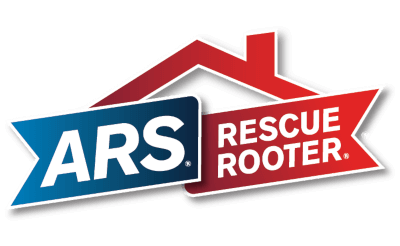 Heating and Furnace
Heating and Furnace
Preventive Maintenance
Everyday use gradually takes its toll on heating systems. That's why it's smart to arrange routine heating system maintenance, especially in the fall as you head into heating season. Regular furnace maintenance service can help ensure you’ll continually enjoy heating performance and extend your system's useful life, reducing the risk of expensive repairs and keeping a lid on your heating costs.
That's where your local ARS®/Rescue Rooter® professional can help. Our trained, certified specialists can provide the heating maintenance you need to keep your furnace running strong for as long as possible—and you can rest assured that all of our services are always backed by our Exceptional Service Guarantee. Here's how we do it:
Filter Replacement
Heating system filters play an integral role to your furnace system’s performance. The wrong filter choice (one that doesn’t fit properly or diminishes air flow) can increase your energy bills and lead to repairs that could have been avoided. The optimal filter can help improve your home’s air quality and help you save money.
That’s why we suggest cleaning your reusable filters or replacing your HVAC system's filter at least four times a year, or as often as once a month during peak usage times.
You will have a variety of filter options to choose from according to your specific HVAC system. Though all air filters are designed to liberate airflow while removing dust, contaminants, pet dander, pollen, and more—some are more efficient than others.
Before deciding on a model, review the filter’s minimum efficiency report value (MERV). On a scale from one to 20, these ratings tell you how effectively a filter gets rid of dust particles, its lifespan, and how much it restricts airflow. Some of the most common filters include:
- Disposable fiberglass filters are the least expensive—but also the least effective. These filters are capable of blocking only large dust particles, which means smaller particles such as pollen and mold can pass right through.
- Washable "electrostatic" filters have a static charge to attract dust, dirt, and other airborne contaminants. While these filters are slightly more effective than their disposable equivalents, they still don’t block the smaller particles.
- Pleated "allergy" filters use a denser mesh material to more effectively trap and eliminate potential allergens like pollen and mold. Most are between 35% and 50% efficient.
- Electronic air cleaners create an ionized electrical field that "magnetizes" pollutant particles, eliminating virtually all pollen and mold spores, up to 94% of smaller particles, and up to 80% of airborne viruses.
- HEPA furnace filters are generally considered to be the "gold standard." These filters are used when clean air is vital, like in hospitals and electronics manufacturing facilities.
Heater Tune-up
Getting a regular furnace tune-up may seem like a hassle, but in the long run they can save you time—and money. Your heating system is an important part of your home that requires proper maintenance to run smoothly. The experts at ARS/Rescue Rooter strive to ensure that all the work done on your furnace is completed with precision and care. With regular tune ups, your furnace can continue to keep you warm when it matters the most.
Stay proactive and don’t wait until your furnace is burnt out and beyond repair. Call in your local specialist to schedule a furnace tune-up when your system is still in good shape and ensure it stays that way. An ARS/ Rescue Rooter Furnace tune-up includes all these services:
- Clean blower compartment—a dirty blower wheel can decrease efficiency which raises heating costs
- Clean and adjust burners
- Tighten and inspect wire connections
- Inspect the heat exchanger
- Inspect the gas pressure and flame operation
- Inspect for proper operation of igniter and pilot light
- Look at and vacuum indoor filter
- Check ductwork and connections for proper airflow
After completion, your heating maintenance specialist will walk you through your Furnace Tune-Up Checklist and provide any recommendations about furnace system maintenance.
Boilers and Radiators
Some of the most common heating systems in newer homes are hot water heat and steam heat, two types of “sealed water-circulating systems” that circulate water heated by a boiler through pipes to radiators.
With regular use, it's only natural that these systems will need maintenance to run smoothly. Here are a few heating maintenance tips that may reduce the amount and severity of boiler and/or radiator repairs. Most of these should be performed by a professional.
Bleed your hot-water system
At the start of each heating season, you will need to bleed your system of unwanted air. While the system is running, go from radiator to radiator and open each bleed valve slightly, then close it when water starts to escape. For multi-level homes, start at the top floor and work your way down.
Zoned heating systems
Save energy by retrofitting separate controls for different zones in large homes, such as areas that are not used often or are on a different schedule than the rest of the home.
Insulate pipes
In steam and hot water systems, insulating pipes is cost effective because it avoids dissipating heat in unwanted areas. Install fiberglass pipe insulation that can withstand the high temperatures of these delivery pipes.
Steam heating system
Steam radiators also need regular maintenance. A clogged air vent will keep a steam radiator from heating up, and usually needs to be replaced. If you notice one of your radiators is not heating up, you should contact a heating specialist to check the air vent.
Banging radiators
Steam radiators can warp floors and dig ruts, causing the radiator to tilt and creating banging noises when the radiator heats up. Shims should be inserted under radiators to pitch them slightly toward the pipe in a one-pipe system or toward the steam trap in a two-pipe system.
Home Service Plan
As a homeowner, it’s important to make sure all systems are in good working order, especially your furnace system for those chilly winters. While you understand the importance of regular maintenance, when do you call in the experts for a tune-up or inspection? And how often should they come?
With an ARS®/Rescue Rooter® Home Service Plan, feel confident knowing that your furnace maintenance is in good hands. Our plan includes developing a regular schedule of cleaning and tuning so your HVAC system runs reliably and efficiently. This means higher performance, increased energy efficiency and help prevent costly breakdowns. Your furnace will be able to run when you need it most. Our Home Service Plan includes:
- Reasonable pricing on heating and AC service, repair and installation
- One-year warranty on labor and repair parts
- Flexible payment plans—pay annually or monthly by credit/debit card*
- National flexibility—move anywhere within our service and continue to use our services from your new home
- Priority emergency service**
- Two seasonal heating service tune-ups
Maintenance that keeps you warm and cozy
Safeguard your home’s HVAC system and help improve your comfort all year-round with an ARS/ Rescue Rooter Home Service Plan. You can rest assured knowing that our work is covered by our Exceptional Service Guarantee. Call 866-399-2885 to reach your local ARS/Rescue Rooter branch and get started today.
*Monthly amounts must be paid by credit / debit card or automatic bank withdrawal. Florida customers HSP term and warranty on repair parts and labor shall not exceed 364 days. Not valid with any other offers or discounts.
**Some restrictions apply. See service center for details. Customer is responsible for any additional service work provided outside the scope of the Home Service Plan (HSP). The condition of the heating, air conditioning, or plumbing systems will be reported at the time of maintenance service, but does not imply any warranties to their performance in the future. Customer may receive notice of schedule for Home Service Plan maintenance services by means of automated phone dialing systems. Service under this Home Service Plan shall continue until terminated by either party upon thirty (30) days prior written notice, provided the Company may discontinue service at any time in the event of non-payment by customer.





Step 2 of 2